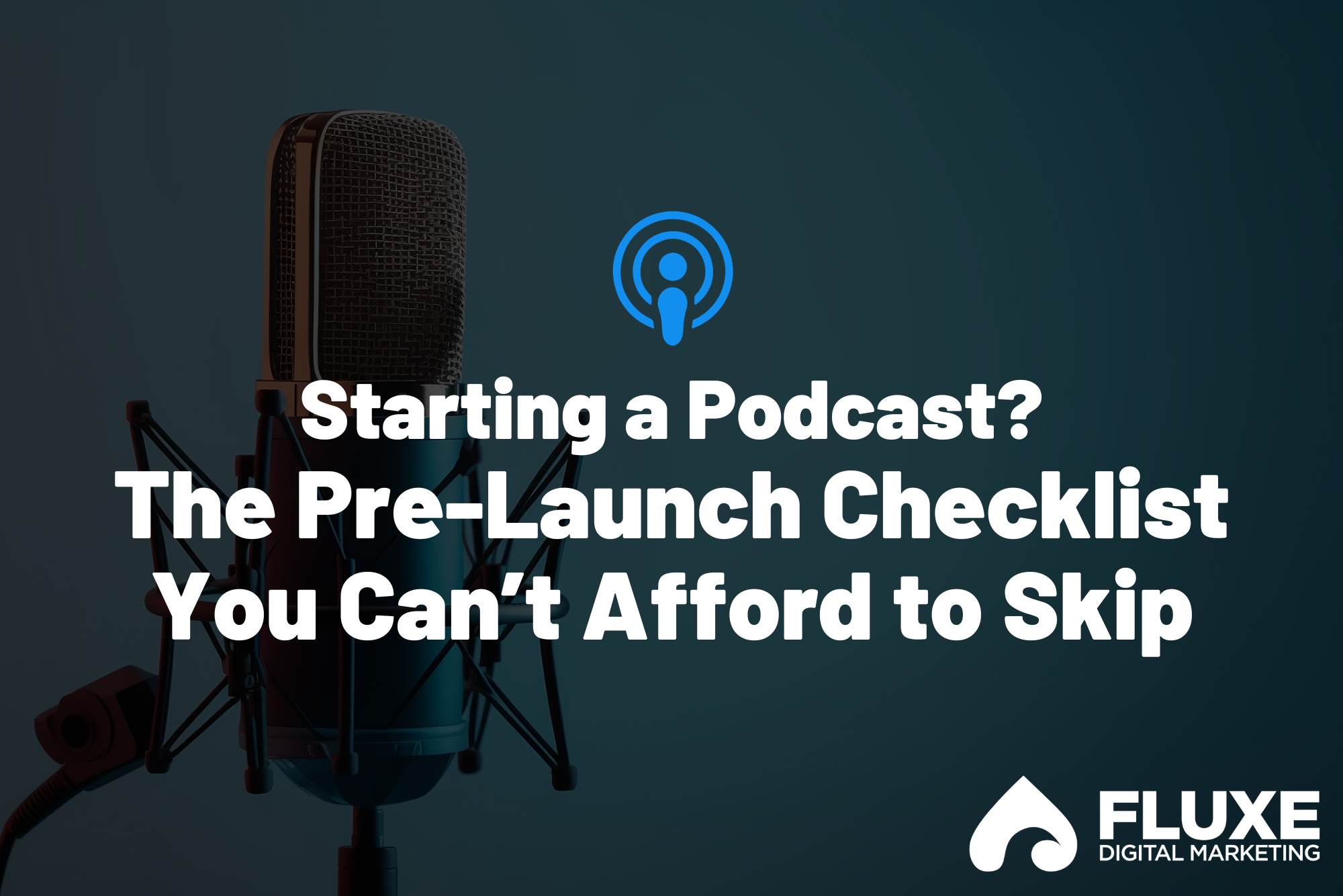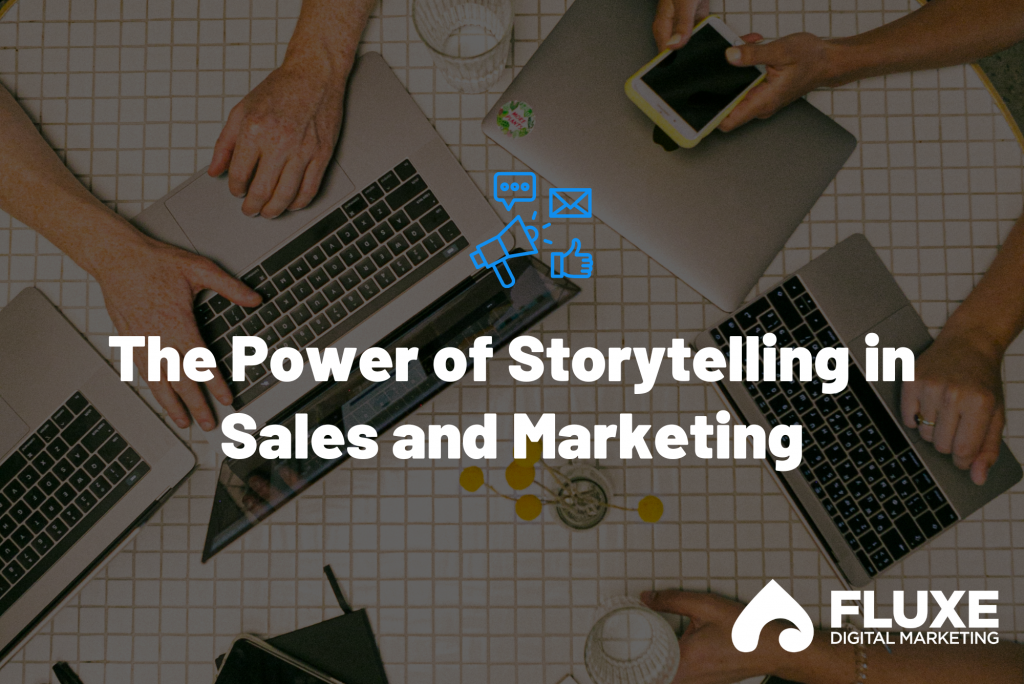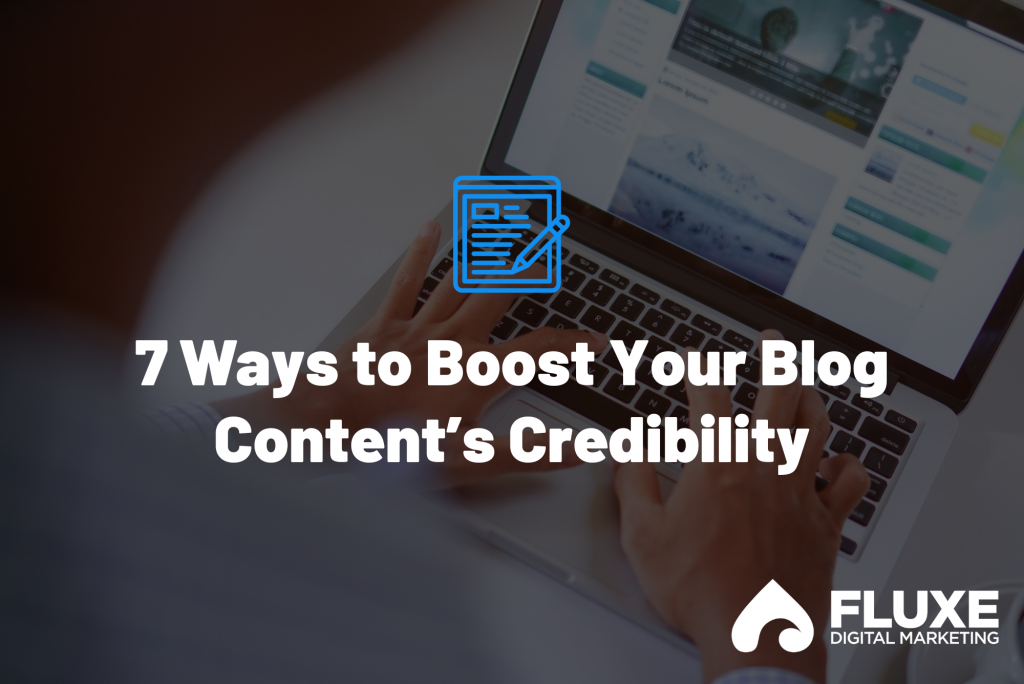“There’s a podcast about that!”
Everyone with a pulse has heard this exact phrase from a colleague, friend, or family member. It’s even become the subject of a national insurance commercial.
Only 10 years ago, the world of podcasts was the Wild West — a vast, uncharted frontier. The barrier to entry was so low, and the quintessential “starting a podcast” checklist was so brief, that anyone could start one — and they did.
Today, some circles might consider podcasts old news. Seriously, does anyone start those up anymore?????
Well, you should. Here’s why.
How Podcasts Build Brands (aka, Where ChatGPT Comes Up Short)
Artificial intelligence has given way to a flood of written content. And while it’s mostly generic and undifferentiated, marketers are terrified of being replaced, business owners are excited to cut costs, and talking heads are milking the topic of “AI-generated content” for all it’s worth.
To be blunt, we firmly believe publishing written opinions and insights your audience finds helpful is still one of the best ways to showcase your value. But getting that content to stand out in the sea of noise is more challenging than ever before.
What will make your brand stand out is you. Deepfakes and voice replication tools can get pretty far, but those are just imitations. AI can’t fully duplicate your unique spark (at least not yet).
That’s where podcasts shine. By capturing your genuine beliefs, insights, analytical processes, and personality, podcasts demonstrate that you’re a real person who provides real value to real individuals.
And because of the relatively inexpensive options on the standard starting-a-podcast checklist, anyone can start podcasting with very few tools.
Who Should Start a Podcast?
If you demonstrate expertise and provide value to your existing audience by talking, podcasting is a good idea. You already have the conversational skills you need to succeed.
For example, concierge physicians provide value to patients by sitting with them for an hour and offering insights and expertise. Coaches and consultants, tech team leaders, project managers, salespeople — none of these roles have to learn a new skill to be successful.
That said, if you can’t publish podcast episodes consistently, podcasting isn’t for you. There’s no point in building hype if you’re just going to fall off for two months. At that point, any momentum, trust, and reliability you’ve established disappear. Because there are so many podcasts out there (remember the insurance commercial?), your audience will move on to the next best thing.
Nothing kills a podcast like inconsistency. If you’re going to start, make sure you carve time out of your schedule for regular recording and publishing.
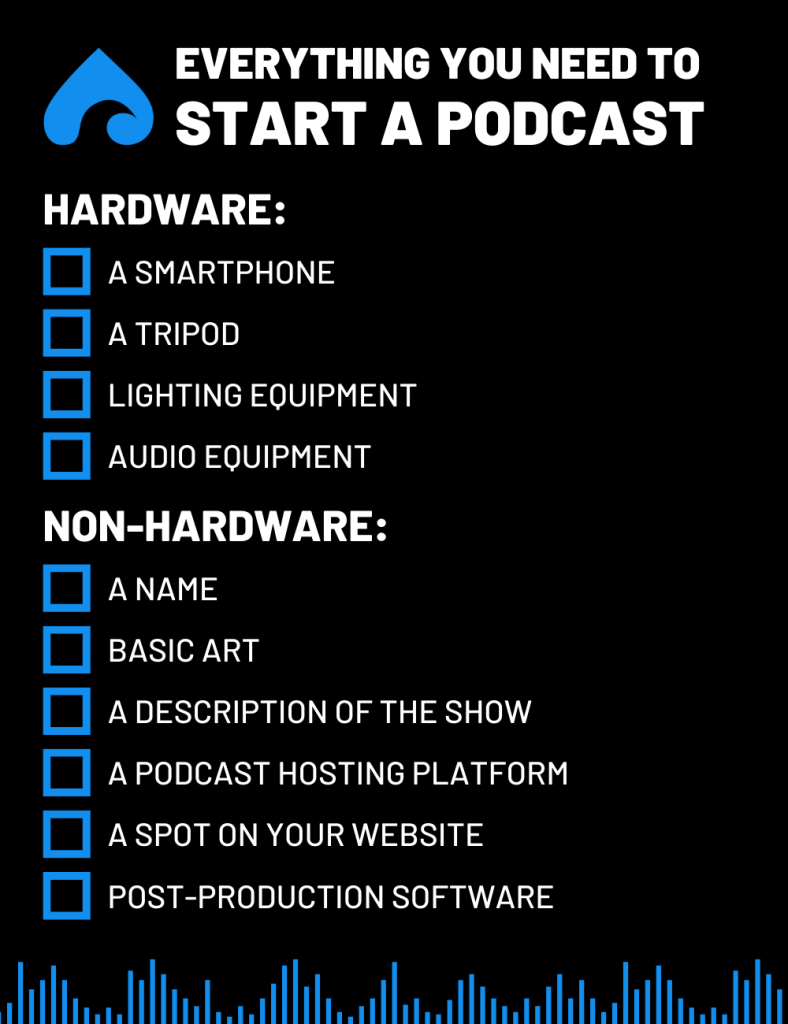
Starting-a-Podcast Checklist: Non-Hardware Needs
Outside of new hardware, here’s what you need to start a podcast:
- Name
- Avoid unconventional spellings, make it memorable, and make sure it accurately describes the podcast. Do your research and see if there are other podcasts with the same name.
- Basic art
- You can use Canva or outsource this task to independent designers. Either way, don’t let perfect be the enemy of done. Get something that works first and improve later. You can update your podcast’s art at any time.
- Description of the show
- Accurately reflect your show’s tone. Make it engaging enough to catch potential listeners’ interest as they browse through thousands of options. If the podcast has unique selling points, like notable guest speakers or specialized content, highlight these.
- Don’t turn your podcast into an island! Include links to your website and make it easy for listeners to find you elsewhere.
- Podcast hosting platform
- This is where you’ll upload audio files to be published on different channels. We recommend Libsyn.
- Spot on your website
- Make sure there’s connectivity and integration across the board. Including your podcast on your website, and vice versa, makes it easy for your audience to get more value out of your brand.
- Post-production software
- Tons of mobile tools can edit short-form content, but you’ll want to edit long-form content like podcasts on a computer instead of a phone.
- iMovie is a decent free option. If you’d like to invest in higher-quality software, Premier Rush ($10/month), Final Cut Pro ($300 one time), and Premiere Pro ($23/month) are all fine choices.
- I wouldn’t rely too heavily on AI — programs like AutoPod ($29/month) are just starting out.
Starting-a-Podcast Checklist: Hardware Needs
The following starting-a-podcast checklist is mainly for podcasts with a single host. If you’d like recommendations for a dual-host setup, get in touch.
- A smartphone
- Use the one you have, or buy a dedicated podcasting phone.
- A tripod
- Any smartphone-specific tripod will do. I purchased mine from Amazon for under $40.
- Lighting equipment
- Start with the lighting in your immediate area, either from a window or an overhead light source, which is completely free.
- A cheap ring/selfie light adds basic shaping. If you’d like to go further, I recommend the Lume Cube studio panel kit, which includes two decent lights, stands, and a remote.
- For the best look, the B&H Bi-Color LED Light Panel will give you soft, flattering light and full control of brightness values and color temperature.
- Audio equipment
- For only $30, you can purchase a lavalier mic to plug into your phone. For first-time podcasters, this can get the job done just fine.
- If you’d like high-quality audio but want to keep some cash in your pocket, Focusrite’s audio interface bundle is a great choice. It includes an audio interface, a decent microphone, headphones, and cables.
- Most mics have a pop filter built in, but I always like to use an extra one to eliminate plosives.
- Unless you choose a lavalier mic, you’ll need either a full-size adjustable mic stand, adjustable boom arm, or desktop mic stand.
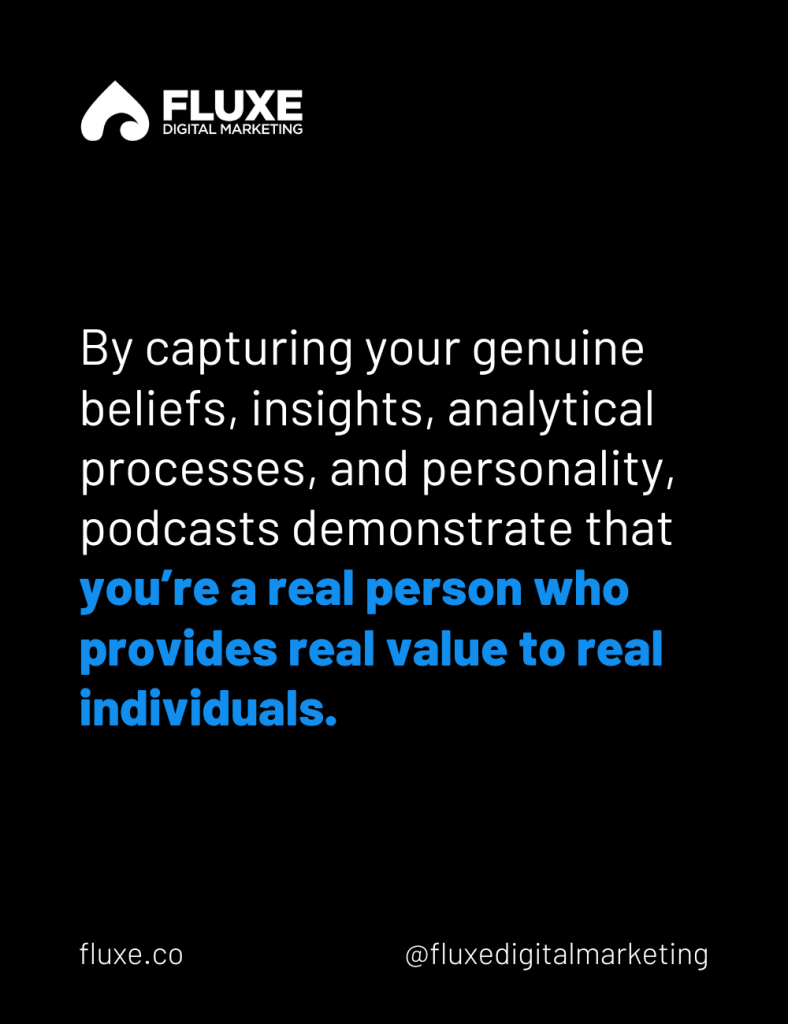
Final Tips
The barrier to entry into the podcasting world is higher than it was 10 years ago. If our starting-a-podcast checklist looks overwhelming, or if you simply don’t have the space on your plate to commit to another endeavor, you’re not alone. Our clients were once in the same boat — until they partnered with us to produce stellar podcasts.
If you’re interested in leveraging podcasts to connect with your audience and achieve your business goals, let us know. We’d love to help you get started.

